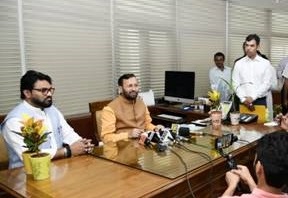 The coronavirus pandemic has caused an unprecedented impact on the operational and IT processes of nearly all organizations. With the role of IT changing from business enabler to mission-critical function, a growing focus on DevOps augurs well in a cloud-centric ecosystem shaping the enterprise world with breakthrough innovations.
The coronavirus pandemic has caused an unprecedented impact on the operational and IT processes of nearly all organizations. With the role of IT changing from business enabler to mission-critical function, a growing focus on DevOps augurs well in a cloud-centric ecosystem shaping the enterprise world with breakthrough innovations.
During the crisis, one of the crucial learnings that have been identified by the enterprise leaders and everyone else is how important is the role of technology in enhancing people’s ability to continue to collaborate, work, receive essential services and learn new skills. (See: Top technology trends to look for in 2021)
The crisis also provided technology leaders an opportunity to re-energize their legacy ecosystems and reshape their business continuity plans. In light of this, DevOps, which is all about continuous improvement, is expected to play even a more crucial role in enhancing businesses’ digital capabilities in 2021.
DevOps is a software development methodology that blends software development with computing operations. Implementing a robust application methodology allows organizations to accelerate delivery and time to market in a competitive environment.
Let’s focus on some of the top DevOps trends that will shape the DevOps market next year.
AI-enabled automation
Automation is the foundation of DevOps and plays an essential role in building a robust application framework that can drive the future of agility. In 2021, AI-based DevOps automation tools will be extended across enterprise ecosystems. They will automate the incorporation of rapid data volumes, equip organizations better analyze data, and use it for automation or decision-making.
Artificial intelligence and Machine Learning, in DevOps will allow the DevOps team to review the problems and preselect the best solution after a complete assessment.
Emphasis on training, learning, and skill enhancement
Among top DevOps trends, DevOps training and learning will be a crucial priority for technology leaders. A study by DevOps Institute found that more than 50 percent of organizations prefer to build their DevOps teams from within the organization. But most organizations don’t have the luxury of creating a DevOps team from in-house resources. And due to the rapid decrease in IT budgets, it may not be possible to hire the best DevOps talent from the outside world.
As a result, organizations will increasingly focus on training and refinement of DevOps methodologies in-house in 2021.
Serverless architecture approach to grow
The technology leaders continually realize the inherent benefits offered by the serverless architecture approach. Serverless architecture is a monumental leap that gives advantages such as fully managed, scalable, and the pay-as-you-go model for DevOps applications. It also helps businesses improve delivery and quickly identify prototypes tailored to evolving customer needs.
The most significant benefit of serverless architecture is the pay-as-you-go model, which means you will pay only for resources that you would use. It’s one of the top DevOps trends that make DevOps cheaper and help many businesses reap their benefits in 2021.
Service Mesh to have more significance
Service Mesh is a built-in application infrastructure layer that facilitates data sharing across services and integrates actions such as encryption, load balancing, authorization, and verification. While Service Mesh may be a relatively new concept in DevOps, many industry onlookers believe that this is the best way for businesses to scale, secure and track apps, especially in the cloud-native application building process.
Security at every layer
As widespread telecommuting is becoming the new standard in the post-pandemic world, data governance, information protection, and compliance will be taken more seriously than ever. It will make it critical for enterprises to build mechanisms that give them full visibility into applications, networks, devices, cloud platforms, and other IT environment components. And DevOps is no exception either.
The DevOps model enables various cross-functional teams to collaborate effectively and make wiser decisions. However, as the DevOps model gets mature, it also faces the challenge of simplifying growing complexities in its applications.
In 2021, as one of the top DevOps trends, it is anticipated that companies will focus on implanting strong security layers to help teams collaborate without fear of threats to their network ecosystems.
With AIOps, organizations will put intelligence at the core of IT operations. There will be increasing stress on integrating artificial intelligence, machine learning, and analytics within DevOps. Concepts such as AIOps and DataOps will help businesses accelerate their software development lifecycle – build, test, release, deploy, and maintain – in 2021.






0 Comments